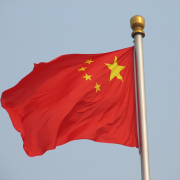On May 23, 2019, per the request of the Consumer Affairs Agency (CAA), the Consumer Committee in the Cabinet Office of Japan held the 54th Food Labeling Committee to start the public discussion of labeling for foods from genome editing technology. In this first meeting, the Consumer Committee invited three speakers to share the common understanding of genome editing technology (JA9057).
On June 20, 2019, the Consumer Committee conducted a second public meeting to discuss possible labeling for foods derived from genome editing technology. CAA introduced four issues to be considered during discussion:
Consumers’ need for labeling;
Feasibility of labeling genome edited foods;
Possibility of verification to check false labeling;
and, International harmonization
Some members, especially consumer group representatives, argued for a mandatory labeling system, which recognizes consumers’ right to that information for food purchasing choices. However, the majority showed some level of understanding that a mandatory labeling system would be unrealistic for several reasons: (1) Non-GE genome edited products are not required to have regulatory review, but the subject of voluntary notification to the Ministry of Health, Labour and Welfare (MHLW); and (2) there is no scientific method to detect non-GE genome edited products i.e., distinguishing between conventional breeding products, such as natural mutation.
Some consumer group representatives shared the opinion that CAA should provide the guidance/guidelines to avoid misleading representation of products, for instance, by using the label “not genome edited.”
A member expressed the view that mandatory labeling is not suitable for non-GE genome edited products; and that CAA should provide voluntary labeling guidance to industry for using “genome edited” or “not genome edited” only if the operators are fully confident of the source of product (e.g., including the source of seeds of the specific crop used as an ingredient).
Members also asked a question to MHLW how to ensure the voluntary reporting of developers. In response, MHLW said that 1) they will prepare the consultation contact point for genome-edited products with guidance materials, both in Japanese and English, 2) they will reach out foreign officials through Embassies in Tokyo to encourage voluntary reporting, and 3) in addition to preparing the list of reported products, they may provide another list of products or developers that intentionally avoided product reporting to escape violation of Japan’s food safety regulations.
MHLW is expected to release draft guidelines for public comment in near future. Though CAA did not indicate the next step or timeline, they explained that any guideline for genome-edited products should be coordinated with other relevant ministries, such as MHLW and MAFF. Both ministries are expected to finalize the guidelines by summer/fall 2019.
Source: Agropages

